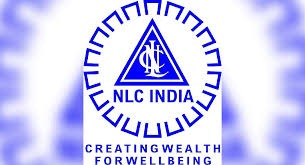 Image Source : The New Indian Express
Image Source : The New Indian Express
India’s Union Cabinet has approved a combined investment of ₹270,000 crore by NTPC Ltd and NLC India Ltd (NLCIL) to accelerate the country’s renewable energy transition. The move is part of India’s broader strategy to meet its COP26 commitments and achieve net-zero emissions by 2070.
NTPC’s Renewable Expansion Plan
- NTPC will invest ₹200,000 crore through its subsidiary NTPC Green Energy Ltd (NGEL)
- The funds will support solar, wind, green hydrogen, and energy storage projects across multiple states
- NTPC aims to reach 60 GW of renewable capacity by 2032, contributing to India’s 500 GW non-fossil target by 2030
- The Cabinet has exempted NTPC from Maharatna CPSE investment limits to fast-track deployment
NLCIL’s Green Energy Roadmap
- NLCIL will invest ₹70,000 crore to scale its renewable capacity from 1.43 GW to 10.11 GW by 2030
- The company targets a 50 percent renewable share in its portfolio by 2030, rising to 77 percent by 2047
- NLC India Green Energy Ltd (NIGEL) will lead the expansion, focusing on solar, wind, energy storage, and green hydrogen
- Key projects are underway in Tamil Nadu, Rajasthan, Gujarat, and Assam
Strategic Impact
- The investments will reduce coal dependency, lower emissions, and create thousands of green jobs
- NTPC and NLCIL’s enhanced portfolios will improve grid stability and support 24x7 clean power supply
- The Cabinet’s decision reinforces India’s global image as a green economy and strengthens its climate leadership
Sources: Press Information Bureau, Economic Times EnergyWorld, The Hindu BusinessLine, CNBC TV18, Moneycontrol.
Advertisement
STORIES YOU MAY LIKE
 Image Source: Press Trust Of India
Image Source: Press Trust Of India
Key Highlights Kanpur district has kicked off Groundwater Awareness Week, which will last from July 16 through 22, as a collective effort to bring citizens, institutions, and government agencies together for improved water management. The initiative is an immediate response to local apprehensions of dwindling aquifers in the region and seeks to educate, motivate, and involve the community through practical conservation measures and awareness drives. Community-Based Engagement and Educational Activities District Magistrate Jitendra Pratap Singh pointed out that all the government departments, local educational institutions, colleges, and schools are involved in the observance. Various activities—workshops, seminars, quiz competitions, and field visits—are being organized to enhance public awareness about groundwater's vital role in daily life. The event's core message, "If water is safe then tomorrow is safe," resonates through school curricula and public exhibitions, with rainwater harvesting, recharge pits, rejuvenation of traditional ponds, and drip/sprinkler irrigation showcased as achievable solutions. Groundwater Conservation Successes and Solutions Kanpur's recent prosperity has its roots in a state-level commitment: over the past seven years, 34 development blocks in Uttar Pradesh have overcome long-standing water scarcity through composite interventions. Some of the key strategies include construction and rejuvenation of ponds for recharging aquifers, constructing check dams, and promoting water-conserving agriculture practices such as drip and sprinkler irrigation. Successful enforcement of the Uttar Pradesh Groundwater (Management and Regulation) Act 2019 has facilitated stricter regulation, monitoring, and sustainable extraction, with every district constituting a special Groundwater Management Council. Success stories like the Noon River revival—the revival of a historically significant 48-km river in Kanpur through a mix of community initiative, satellite mapping, afforestation, and pollution control—underscore the transforming potential of collaborative citizen and government effort. Jal Shakti Abhiyan and Statewide Momentum The Jal Shakti Abhiyan-VI, which was started in March 2025, also continues to complement these initiatives by focusing on people's involvement in water conservation, water body rejuvenation, and rainwater harvesting initiatives. Through years of collaborative efforts, Kanpur endeavors to stimulate behavior change at the grassroots level, guarantee future water security, and serve as a role model for other districts facing similar challenges. Sources: Times of India, Instagram, CGWB
 Image Source: Economic Times
Image Source: Economic Times
 Image Source: AP7AM
Image Source: AP7AM
Advertisement




